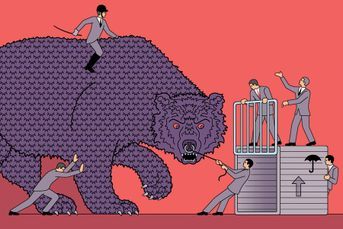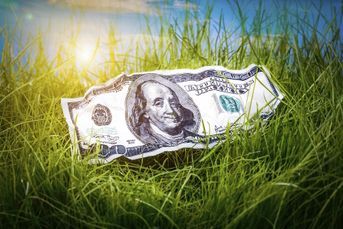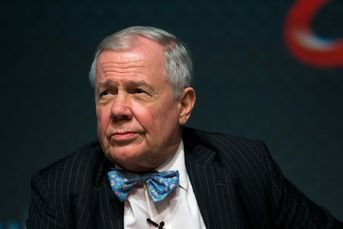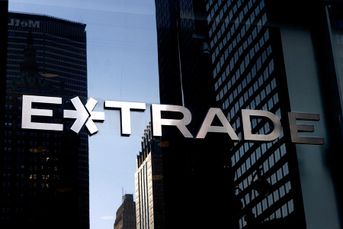ESG funds boosted by women and millennial investors
Adviser interest in ESG expands along with investment options.
Women and millennials are responsible for the doubling of ESG assets to $8.1 trillion worldwide since 2014 — and you can expect that trend to continue.
The obvious reason: They have more money, said Jordan Farris, head of ETF product development at Nuveen Investments, speaking at an InvestmentNews Innovators in Investing event in New York City.
“Women now control up to 50% of the wealth in the country, and millennials will be the recipients of that wealth in coming decades,” he said.
Not only do they have more money, they have more interest in ESG, which stands for environmental, social and governance investment guidelines. According to Mr. Farris, 90% of millennials are interested in ESG strategies, as are 80% of women.
Another factor driving ESG is the growth in available data about companies via the internet.
“We live in a time now, where if I see an article on climate change on my phone, I can go and research that with a click of my phone, and I can make a decision about how to integrate that into my investments. Twenty years ago, if I wanted to learn about climate change, I’d have to make a trip to the library, or I’d have to go to a college to learn about it,” Mr. Farris said.
As interest in ESG increases among women and millennials, it’s growing among advisers, said Stephen Distante, CEO of Vanderbilt Financial Group.
“Advisers are looking for an opportunity to do good with clients’ money,” he said. “And if you’re not in the area of impact and interest to them, you’re going to lose those assets.”
That interest has been spurred by the advent of new ESG products, such as ETFs, that make it easier for average investors to participate in socially responsible investing. Even 10 years ago, ESG products were limited to a handful of mutual funds and vehicles aimed at high-net-worth investors.
“It was stuck in accredited investor world, where people would have to be accredited — wealthy — to invest this way,” Mr. Distante said.
Morningstar Inc. currently lists 39 ETFs with ESG strategies, up from just five at this time in 2014. The largest, iShares MSCI KLD 400 Social ETF, has $951 million in assets.
The number of ESG mutual funds has soared to 235 from 164 in 2014. (The number of open-ended ESG funds is inflated by some funds, such as Ariel, that do not invest in tobacco products or similar “sin stocks.” )
Can clients create an entire portfolio of ESG investments? Not easily, said Abdur Nimeri, senior investment strategist, FlexShares ETFs, Northern Trust Asset Management, but that, too, has changed significantly for the better.
Reduced diversification
When you just screen out companies you don’t like — such as oil — you eliminate entire asset classes from a portfolio. While that would have helped investors during the collapse of oil prices in 2014 and 2015, it hurts them in periods when energy stocks fare well. The reduction in diversification can make ESG more suitable for clients with more assets and a greater risk tolerance, Mr. Nimeri said.
Now, however, ETFs can focus on investing in companies with the best ESG practices in their industries.
“Instead of focusing on screening out companies, many are looking to bring in companies — companies with solid records in environmental, social issues and governance,” Mr. Nimeri said. “Once you do that, you find out that your whole portfolio changes dramatically — and you find out that on balance, your risk comes down. And you’ll see total return improve as well.”
At least some ETFs and funds have shown they can, indeed, produce performance as well as good feelings. For example, iShares MSCI Emerging Markets ESG Optimized ETF (ESGE) has gained 36.0% this year, compared to 30.7% for the average emerging markets fund, according to Morningstar. Also, iShares MSCI USA ESG Select ETF (SUSA) has gained 18.6% this year, besting the 17.3% gain notched by the Standard & Poor’s 500.
ETFs also have shown that they can operate at a relatively low cost.
Both the iShares offerings have expense ratios at 0.5% or less, for example. And the biggest ESG mutual fund of all, the $3.7 billion Vanguard FTSE Social Index fund (VFTSX), charges 0.22% for investor shares and 0.11% for institutional shares.

“The most important criteria are the values and needs of the clients to create a portfolio which is in alignment with those values and needs. Although there are ‘general ESG’ portfolios, the client experience will have greater intimacy the deeper and more specific the adviser can get with the information gathered during the interview.”

“In addition to considering the alignment with client goals, financial advisers should consider the consistency of methodology as it is applied to the strategies being evaluated, and that the ESG criteria being used to score individual companies are economically relevant and beneficial. Specifically, do the strategies achieve the desired balance between investment exposure, investment outcome and adherence to personal values?”

“It is important that financial advisers consider that a client’s financial goals may often be aligned with their closely held personal goals and objectives. A well-balanced approach to ESG, that not only integrates ESG criteria but also incorporates analysis of risk versus return in a well-diversified investment portfolio, may help investors not only realize their investment objectives but deliver on their personal values.”
Learn more about reprints and licensing for this article.








